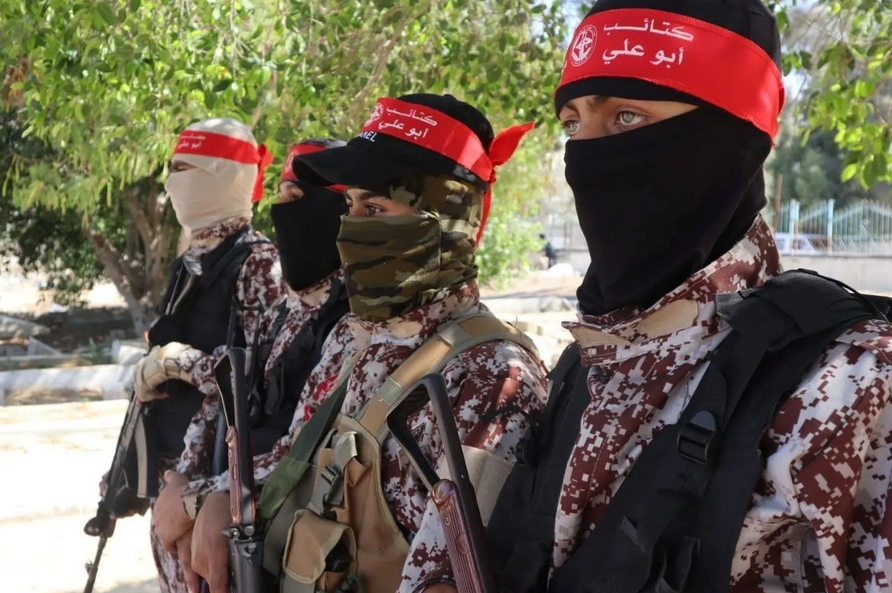After all the dramatic events from October 7, 2023, up to the ceasefire, how do you assess the situation in Gaza? Do you believe Israel will abide by the ceasefire and the other agreed-upon terms?
The situation in Gaza is, of course, dire. There are more than 70,000 martyrs, over 10,000 missing persons, and more than 100,000 wounded — many of them amputees.
As for adherence to the ceasefire, we do not trust this Zionist entity or this enemy. We have no faith in its promises, nor in those who have guaranteed this agreement. (Israel, editors note) has already violated the deal. Today, three martyrs were killed in Gaza. This morning, the ceasefire was breached in the eastern part of the Strip — just as it has been in Lebanon, where the number of violations has now exceeded 6,000.
We have no confidence in this agreement. As some officials noted today, even the American president declared that he would give the green light for renewed bombings if Hamas failed to return the bodies of dead Zionist captives. This agreement is not guaranteed — unfortunately.
But there are also factors preventing this entity from continuing the war in Gaza as before. Israel has not achieved any of the goals it set out at the beginning of its aggression. Not a single one. As Netanyahu himself admitted in the Knesset, he paid a heavy price in Gaza for attempting to free the Zionist captives.
At first, the aggression began with the occupation of Gaza. Then came economic projects aimed at turning Gaza into the “Riviera of the Middle East,” followed by divisions between Arab and international forces.
How do you see the future of Gaza?
We have paid this heavy price with the lives and souls of our Palestinian people.
No, we will not leave Gaza, and we will not accept anyone else governing it. We reject any new mandate — even under international or humanitarian pretexts — because such arrangements only perpetuate colonialism against our people.
The Palestinian people are bound to their land and rooted in it, no matter the cost. The day after in Gaza will be a Palestinian day.
Who will govern Gaza?
The Palestinian people. We have capable individuals — independent, unaffiliated with any faction — who can and will govern Gaza. Under Egyptian mediation, all Palestinian factions have agreed that Gaza should be administered by an independent Palestinian body with the authority to manage the Strip.
After the events in Gaza, Syria, and the recent developments — especially following the summit in Sharm el-Sheikh — can we say the Middle East is on a path toward peace?
As long as Palestinian land remains occupied, the question of peace is far from resolved. How can there be peace when a people live under oppression, and the Zionist entity continues to torture, kill, and imprison?
For 77 years, the Palestinian cause has been influenced by developments in neighboring countries — but not decisively so. We had hoped those countries would stand and fight alongside us, as the people of Yemen have done. The Lebanese resistance tried — they gave their martyrs and risked the destruction of their villages to support Gaza.
No matter the condition of the states surrounding us, the Palestinian people will not abandon their rights.
True peace exists only between peoples and nations that stand as equals. Between us and the Zionist entity, there is no equality — they possess nuclear weapons and every kind of armament used to kill our families and our people.
But we possess something stronger than those weapons, stronger even than U.S. backing: the right and the will to resist. That is why we say peace will only come when the Palestinian people themselves can live in peace. Peace begins in Palestine.
Some claim the Palestinian cause has suffered a serious blow — perhaps even a setback — particularly concerning the axis of forces supporting it. Do you, as the PFLP, share that view?
Quite the opposite. The battle for Gaza has strengthened the determination of the Palestinian people to return to their towns and villages in Palestine. Today, more than ever, we are committed to our credo: to liberate all of Palestine, from the river to the sea.
The Palestinian cause today is the world’s foremost cause — and that gives strength to our people. Public opinion and the world’s conscience now stand with Palestine.
One of the pillars of this entity was its Zionist narrative — portraying itself as a victim, arriving in Palestine as refugees fleeing persecution. That victimhood has vanished.
Today, it is the Palestinian people who are the victims.
We must build on this international solidarity and use it to advance our cause. Today, an International Criminal Court warrant is out for Netanyahu, the head of this hostile government. He can no longer fly over many countries. Zionist diplomats are now received only by the U.S. government. Just look at how other delegations behaved when he tried to speak before the UN.
All of this strengthens the Palestinian people. That is why we are now more determined than ever to return and liberate all of Palestine.
Regarding the summit in Sharm el-Sheikh — there was a similar one in 1996, called the “Summit of the Peacemakers.” But what kind of peace are they talking about?
There will be no peace until the Palestinian people return to their homeland. Our vision of peace is that every Palestinian returns home and that the Palestinian people reclaim the rights denied to them in 1948 through acts of violence.
Will the resistance continue?
Resistance lives in the hearts of the Palestinian people.
I will close with the words of our legendary comrade, the writer Ghassan Kanafani: “Either Palestine — or fire, generation after generation.”
Note: Due to security concerns on the ground, the interview had to be canceled during the recording. We plan to conduct it again in the near future.
Interview by Hüseyin Dogru
source: Medium
